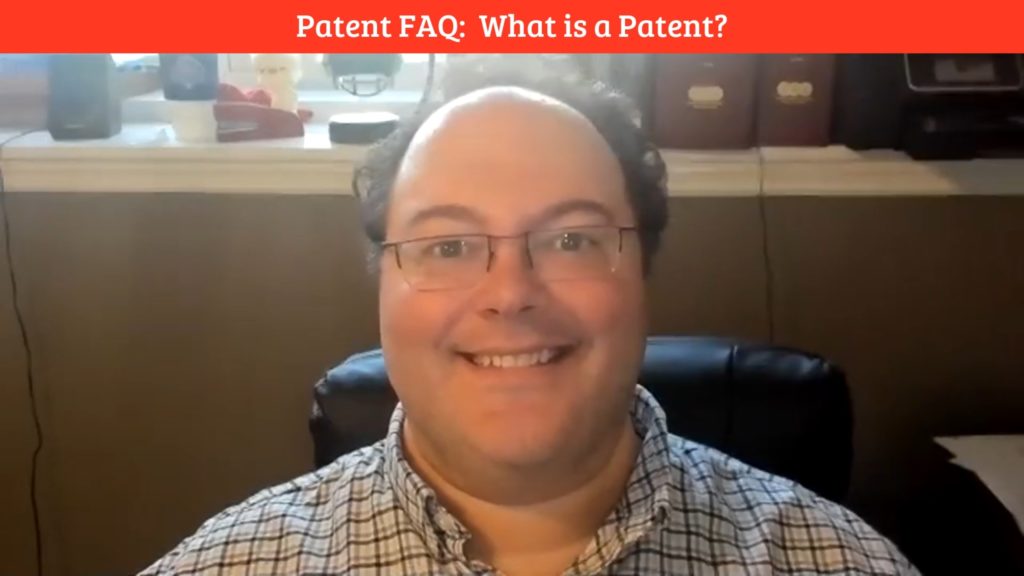Podcast (video): Play in new window | Download
At Verna Law, P.C., we are doing a series of video blogs that coincide with our FAQs. This video answers the question “What is a patent?”
Hi, I’m Anthony Verna, managing partner of Verna Law, P.C. where our team focuses on intellectual property and advertising law. We’re starting at the beginning of patent law for this series that matches up with the FAQ on our website.
Let’s start at the beginning because it’s a very good place to start.
What is a patent?
A patent is a grant of protection for an invention. I want you to think about a patent as a contract. The government gives you a grant to protect your invention. You have to tell the government, and effectively, the public, what your invention is. That grant by the US Patent and Trademark Office, depending on the type of patent that’s granted, could last between 15 and 20 years.
Understand that this doesn’t allow you to sell your product. You’re always allowed to sell your product, even if you don’t want to get a patent on it, you can sell it.
What the patent grants you is the ability to stop others from copying your invention in your patent from selling the invention in your patent. That’s the key. With patent law, it’s a 15 to 20 year monopoly on what’s described in the patent.
We have three types of patents here in the United States.
- Utility patents. A utility patent covers anyone that invents a new and useful process, a new and useful article of manufacture, a new or useful machine, or composition of matter. Anything that improves upon any of that list will also qualify as a utility patent. We always say “build a better mouse trap.” That’s what a utility patent is.
- There are design patents. Now, in other countries we might have other definitions for that, but in the United States, a design patent includes an original, new, ornamental design for a manufactured product. That’s the key. It’s just the design.
- The third type of patent that you can receive are plant patents. That’s right. If you’re a DNA engineer, I know there aren’t a lot of you out there, but if you’re engineering DNA and you create a new plant or you crossbreed, you cross-hybrid plants, that’ll be a new plant. The Production, discover, invention of a new kind of plant that is capable of reproduction means that you’ll get a plant patent.
That’s the basic overview of what a patent is.
Again, I’m Anthony Verna, managing partner of law. You can find us vernalaw.com and I’ll see you for the next part of our FAQ. Thank you.

